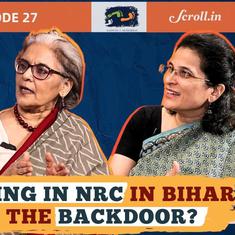I am tired of acting like a referee when my children fight. What is a better way of handling their fights?
It can be very annoying when children fight over trivial things and come to you complaining about what their sibling did or didn’t do.
“She is not letting me use the computer. I want to play the game too!”
“He took my ruler and now I can’t find it!”
“I want the window seat!”
“She got a bigger slice of the cake!”
First, recognise the motivation behind the bickering. Sometimes, children fight to get your attention. A well-timed “Look at me, I’m being wronged!” act can be more effective than quietly playing alone. To counter this, carve out individual time with each child daily. Even ten to fifteen minutes of focused attention on each child goes a long way. Additionally, acknowledge positive sibling interactions. When they share nicely or play cooperatively, let them know that you noticed. Say, “I saw how well you were playing together. It was so nice and peaceful while I was reading.” This reinforces positive behaviour and reduces the need for attention-seeking squabbles.
When faced with minor disputes, resist the urge to jump in and solve the problem for them. Instead, coach them through conflict resolution. Try a simple, “Hmm, I’m sure you two can work this out together,” to nudge them towards finding a solution. This fosters independence and problem-solving skills that will benefit them throughout life.
Establish clear ground rules for all siblings. “No hitting,” No name-calling” and “Use kind words” are essential starting points. Fairness doesn’t equate to identical treatment. Older children may have more privileges, such as different bedtimes or their own phone. You can explain the difference based on age and needs. If the younger one complains, explain that the older child had similar rules at their age. Consistency, clear communication and setting expectations are key.
For more complex situations, role-playing can be a valuable tool. Enact scenarios to help them navigate tricky situations and practise communication skills using emotional honesty. Additionally, be mindful of power imbalances between siblings. A physically stronger older child can intimidate younger ones. If this is the case, ensure the younger child feels safe while expressing their needs and intervene decisively if things get physical. You may find yourself reiterating the “No hitting” rule and separating them for a cool-down.
The best way to handle sibling fights is to stay calm and treat both children the same way. You might think you know who started the fight, but you will never know the whole story. If you end up taking one child’s side and scolding the other, who you thought was the aggressor, the other would feel it’s unfair. Many times, parents blame the older child and ask them to be more understanding. The younger sibling may develop a victim mentality if you take their side all the time. The older child may start resenting the younger sibling and make the situation worse. Whenever Anagha’s seven-year-old twins would get into fights, she tended to take her daughter’s side, which annoyed her son. He would become angrier at his sister. Anagha’s daughter did not like her interference either because that made her feel as if she was not capable of defending herself. It was a lose-lose situation.
Luckily, in a parenting training at their school, she learned about the NVC (Non-Violent Communication) technique for conflict resolution mentioned earlier. She started using it when her kids were upset. Instead of starting to solve the problem, she started asking them to take a break and calm down first. “I see that you are angry right now. Let’s take a few deep breaths.” Once they were calm, she would ask each of them what happened without taking anyone’s side. She let them talk about how they were feeling, what they needed and what they wished would happen. She encouraged them to listen without interrupting the other person. Asking them to imagine how their sibling might be feeling was also a way of teaching them empathy and helped resolve the conflict sooner. When both felt heard and understood, she asked them how they could solve the problem together. With consistent coaching and patience, her children started developing the skills to manage their conflicts independently.
Usually, if this is handled by parents without taking sides, in most cases, children grow out of it by the time they become adults and even joke about it. But if a parent has been particularly partial towards one child or always compared one to the other, this rivalry can result in hostility among the siblings even into adulthood.

Excerpted with permission from This Book Won’t Teach You Parenting: But It Will Make You a Better Parent, Riri G Trivedi and Anagha Nagpal, Penguin India.










